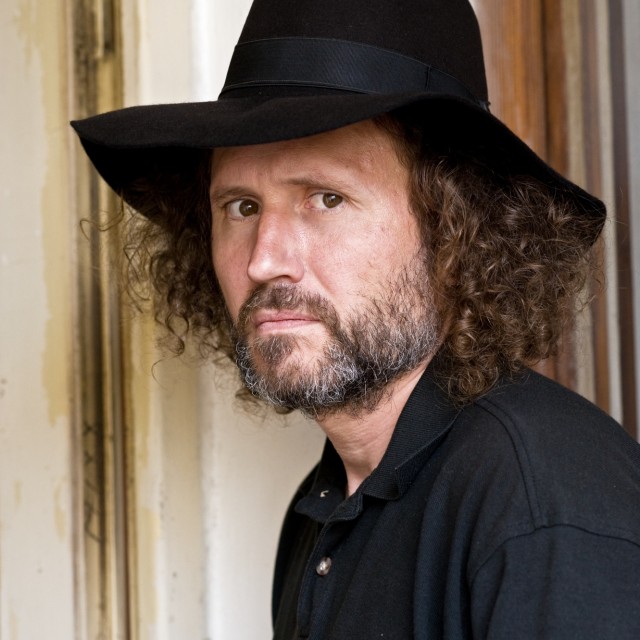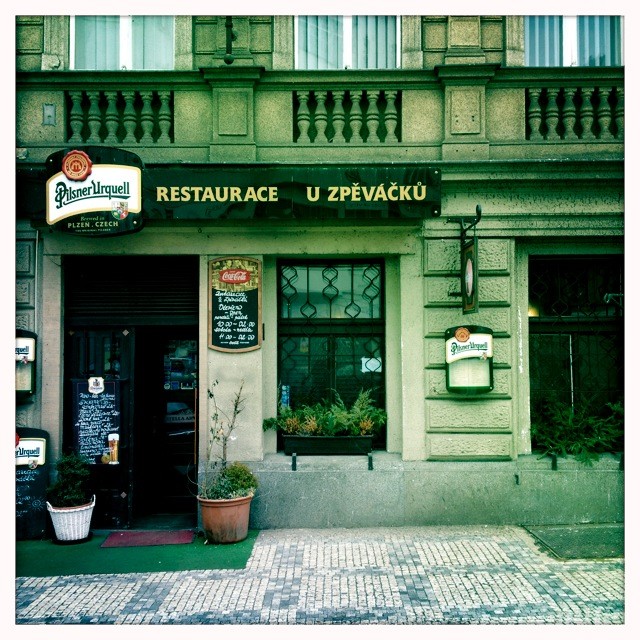
Petr Placák
Petr Placák (son of the Charter 77 spokesman Bedřich Placák) was a member of the youngest generation of anticommunist opposition; in the late 1980s he was one of organizers of public events against the regime. In 1982-1986 he played the clarinet in the band The Plastic People of the Universe. Under incessant bullying from State Security he worked in various manual professions, he published in samizdat (the novel Medorek and a collection of poems Obrovský zasněžený hřbitov (Huge Snow-covered Graveyard), among others). In May 1988 he participated in establishing the independent initiative Czech Children, and he wrote its monarchist manifesto: "At that time we came up with something which was totally ungraspable for the Bolsheviks. Obviously, State Security jumped at it and they had the manifesto published in the Rudé právo newspaper. In order to let people see for themselves what we were like. And thus among proclamations from brigades of milkers and socialist shock-workers, suddenly there appeared our manifesto, stating that we, Czech Children, declared that the Czech kingdom still lasted, and that we were preparing for the coming of the Czech king, which was our ultimate goal..." Petr Placák says that from 1988 he was living from one anticommunist demonstration to another, and that it was clear to him that the regime could collapse only under persistent pressure from the public. In June 1988 together with his friends they organized a pamphlet campaign against the demolition of the old Žižkov neighbourhood. Two months later, Czech Children used cyclostyled pamphlets to invite their fellow citizens to participate in a demonstration on the twentieth anniversary of August 21, 1968, a gathering to which thousands of people came. Protests on the day of the foundation of the Czechoslovak Republic on October 28, 1988, followed. In January 1989, when he attempted to commemorate the memory of Jan Palach and lay flowers at the monument of St Wenceslas, Petr Placák was arrested (not for the first time): "They arrested me on January 15th before I even managed to get to the monument on Wenceslas Square. While we waited together with other people from the opposition movement at the police station in Benedikt Street, I wrote a note on a piece of paper that we would meet again the following day. It all happened due to a ribbon, which I hid in the lining of my coat, and on which was written: ´Czech Children to Jan Palach.´ I felt sorry I was not able to place it on the St Wenceslas monument. But we managed to organize a demonstration for the following day, and this unleashed a chain reaction of protests..." Placák was released in the evening of the same day, the following day State Security arrested him again and held him in detention for two weeks. He was then given a suspended sentence. Today he believes that the demonstrations on Wenceslas Square during Palach Week marked a turning point on the Czech society's road to freedom: among other things by influencing or even changing the mentality of those who till that time had been active in the so-called grey zone. After 1989 Petr Placák completed studies of history at the Faculty of Arts at Charles University. He published several books, the most recent one being the prose work Fízl (Cop), for which he was awarded the Magnesia Litera Prize in 2008. He writes for various Czech dailies and is in charge of the cultural-social student newspaper Babylon.



